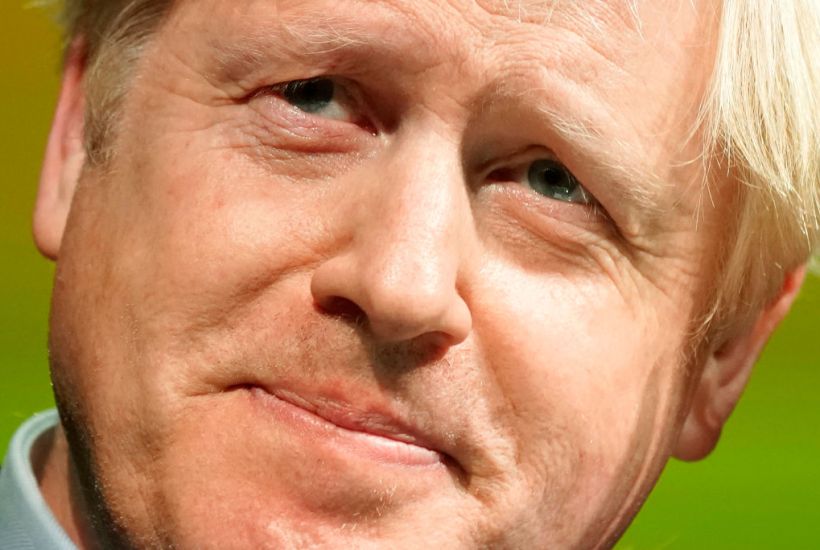There is an interesting debate going on in the British courts which could have lasting ramifications for the practices of future governments under the British constitution. What is the British Constitution?
According to Baron Montesquieu, the British Constitution is republican; that is, the monarch is subject to the law and acts on ministerial advice; the British people participate in the selection of their parliamentary representatives and are able to participate in the government of Britain.
According to British jurists, Britain is a constitutional monarchy; that is, the monarch is subject to the law and acts on ministerial advice; the people participate in the government by both as part of the parliament and in the selection of their representatives. British jurists say this, probably because Montesquieu taught them what to say.
Boris Johnson, the current Prime Minister, advised Her Majesty to prorogue or suspend the parliament, which advice she accepted, much to the dismay of certain members of parliament who wanted to have the parliamentary pulpit for propaganda purposes and ultimately to ensure that Johnson’s government was unable to fulfil the Brexit promise. Despite having a majority, they preferred that arrangement, because they were petrified that the Leninist, Jeremy Corbyn, would become Prime Minister.
After parliament was prorogued, one MP went to the Scottish Court of Sessions and argued that Boris lied to the Queen in order to obtain a prorogation for such a lengthy period. The Scottish Court agreed. When the matter was brought on before an English High Court, that Court basically said, so what! It’s none of the Court’s business what advice the PM gave the Queen. The matter has now been appealed to the English Supreme Court.
What is interesting about this exercise is the implication that the British constitution has vested a power of constitutional review in British Courts. That view is novel given that the British do not have a written constitution in the sense of the Australian or the United States where legislative powers are limited and enumerated and a specific power is vested in the highest national court to determine if the parliament or the government has exceeded its powers.
The actual British Constitutional is mostly arranged around conventions although there are some limitations imposed by legislation as well. The constitutional conventions of responsible government are followed by virtue of the goodwill of the members of parliament regardless of the particular party.
However, there is no supreme law, or constitution, in the sense of the Commonwealth Constitution. As the practice of government is guided by the parliamentary conventions, it has been long established that those conventions can not justiciable; that is the Court can not enforce them.
Now some would find that non-justiciable nature of the conventions foolhardy. However, the reason for this is that the conventions need to be adjusted as sentiments change; but if they had been fixed by the Courts, the monarch’s powers could not have changed to accommodate the democratisation of the government in the nineteenth century.
The argument being advanced to the Supreme Court at Westminster is that Johnson’s motive in shutting down the parliament being dishonest, was unlawful. In other words, the Court is being asked to rule that the Prime Minister, having misled the Queen, denied Her Majesty the exercise of a personal discretion. Had the Queen known the truth, she would have refused the advice and not have prorogued the Parliament. This implies that she has a discretion whether or not to accept the advice of her Prime Minister.
If the Supreme Court decides that the Queen was misled and that the Prime Minister’s actions were illegal, it will have rolled the Monarch out of the constitutional monarchy and the Imperial Parliament back to its position in the days of King James II.
The Court will have granted a power to the King to disregard ministerial advice and to do according to his own will, which will become the law. An attempt by the Parliament to legislate and control the monarch’s power would be easily defeated by the monarch who need only refuse to sign that legislation into law.
All this now hangs in the balance; only because specific members of the British Conservative Party refuse to adhere to their own undertaking to abide by the Brexit result.
Listen carefully! That is Gough Whitlam laughing.
David Long is a retired solicitor, economist and PhD candidate at Griffith University School of Law.
Got something to add? Join the discussion and comment below.
Got something to add? Join the discussion and comment below.
Get 10 issues for just $10
Subscribe to The Spectator Australia today for the next 10 magazine issues, plus full online access, for just $10.


























Comments
Don't miss out
Join the conversation with other Spectator Australia readers. Subscribe to leave a comment.
SUBSCRIBEAlready a subscriber? Log in